Description
Railroad Short Name: SP
Prototype Information:
In 1949, EMD introduced the GP7. The basic design followed most diesel switchers with the addition of a short hood instead of an end-cab. The hoods were also full height to better accommodate the diesel engine and mechanical and electrical components.
In 1954 EMD upgraded the GP7 to become the 1,750 horsepower GP9. Externally, the first GP9s were virtually unchanged from the last GP7s. Later versions would include different louver arrangements and the last ones would come without the frame skirting. The GP9 was available with all of the fuel tank, steam generator, and dynamic brake options as the GP7, including “torpedo tube” air tanks mounted on the roof.
Many railroads chose to rebuild their GP7s and GP9s for continued service. Often times, it was cheaper to do this rather than purchasing brand-new locomotives.
SP Features:
- Nathan P3 Horn
- Signal lights per road number
- Large fuel tank
- Dynamic brakes
- Whip antenna
During the 1970’s, SP went on an ambitious task to rebuild their GP9 fleet, known as the “GRIP” program. This program included new wiring, new main generator, complete rebuild of the prime mover with new parts, improved battery box doors, and removed rear light packages (in some cases). A small batch of GP9’s were renumbered into the 2868-2899 class. Demoted to “switchers” in order to save maintenance costs, this class included rebuilt and non rebuilt units.
We are offering #2873, which retained it’s full light package on both ends. #2873 currently enjoys it’s retirement at a Northern California museum. It may be the last locomotives in this scheme still operating. Out of the large batch of SP GP9E’s, only 9 were painted into these colors.
Road Number Specific Features:
#2873
- Phase II Switcher class rebuild “R”
- signal lights on both ends
- rear mounted fuel fillers
- blank pilots, large SP style road numbers and number boards
#3370
- Phase II GRIP rebuild “E”
- no signal lights (Ex T&NO)
- rear mounted fuel fillers
- modified “catch” style pilots
- Beacon, large SP style numbers with Santa Fe style number boards
#3792
- Phase II GRIP rebuild “E”
- modified front signal lights
- rear mounted fuel fillers
- modified “catch” style pilots
- flat dynamic brake fan
- small Santa Fe style numbers and number boards
#3846
- Phase III GRIP rebuild “E”
- Front signal lights
- forward mounted fuel fillers
- modified “catch” style pilots, large SP style numbers with Santa Fe style number boards
Locomotive Features:
- Full cab interior
- Wire grab irons
- Coupler cut levers
- See-through cab windows
- Flexible rubber trainline hose
- Flexible rubber MU hoses
- Drop steps unless noted
- “Nub” style walkway tread
- Lift rings
- Sander lines
- Windshield wipers
- MU stands
- See-through cab windows
- Bell placement & type per prototype
- Etched metal radiator intake grilles and fan grilles
- Air tanks mounted below sill unless noted
- Blomberg-B trucks with appropriate bearing caps
- Speed recorder unless noted
- Body-mounted McHenry® operating scale knuckle couplers
- DCC-ready features Quick Plug™ plug-and-play technology with 21-pin NEM connector
- Fine-scale Celcon handrails for scale appearance
- Detailed fuel tank with fuel fillers, fuel gauges, breather pipes, and retention tanks
- Genesis driveline with 5-pole skew wound motor, precision machined flywheels, and multi-link drivetrain
- All-wheel drive with precision gears for smooth & quiet operation
- All-wheel electrical pickup provides reliable current flow
- Wheels with RP25 contours operate on all popular brands of track
- Bidirectional constant LED lighting so headlight brightness remains constant
- Heavy die-cast frame for greater traction and more pulling power
- Scaled from prototype resources including drawings, field measurements, photographs, and more
- Accurately-painted and –printed paint schemes
- Fully-assembled and ready-to-run
- Packaging securely holds model for safe storage
- Minimum radius: 18” — Recommended radius: 22”

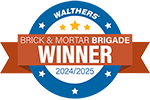
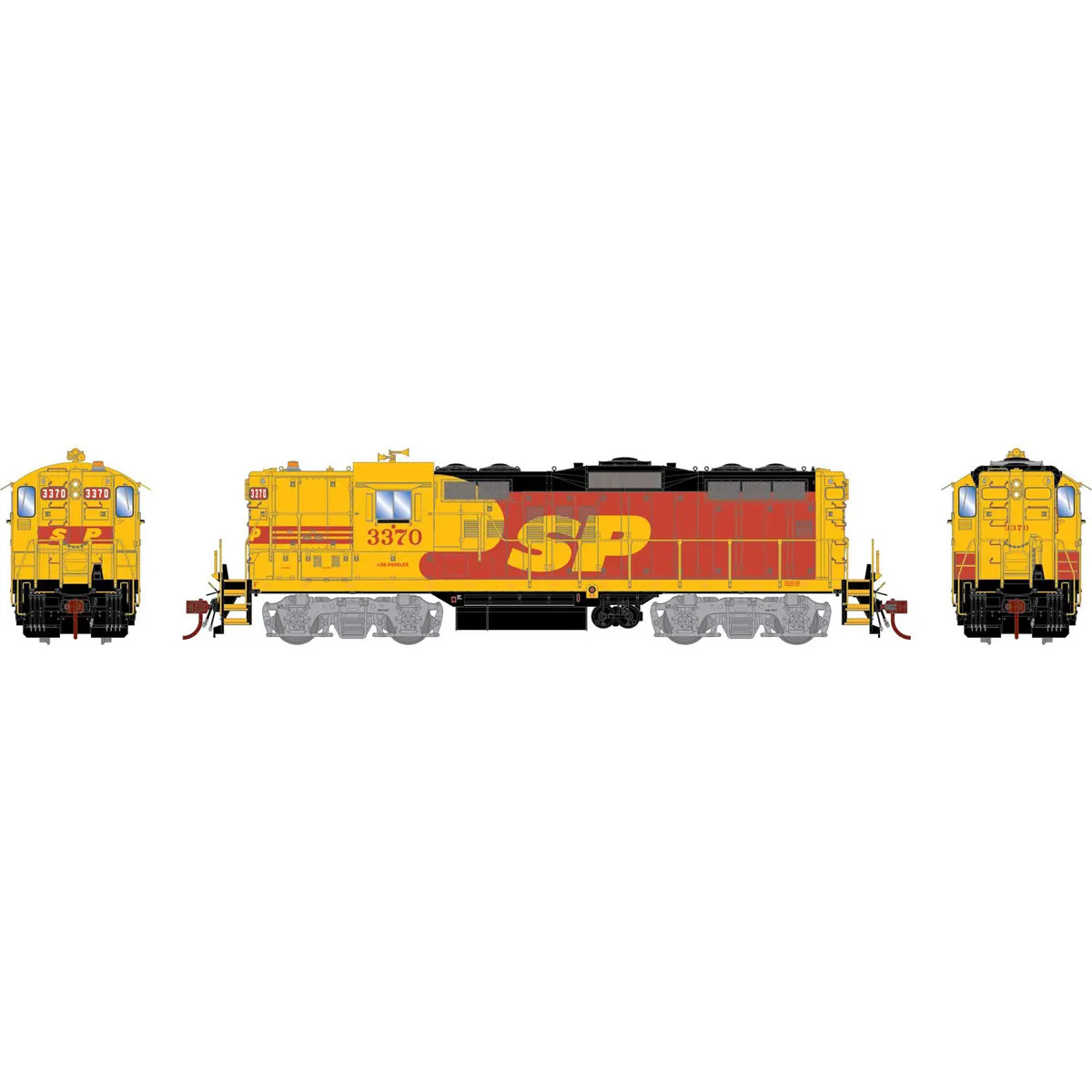
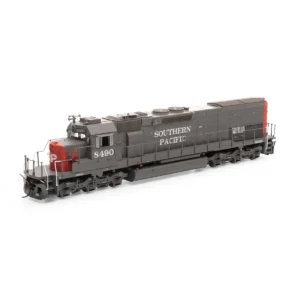

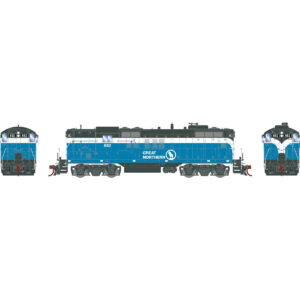
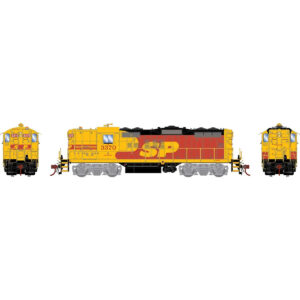
Reviews
There are no reviews yet.